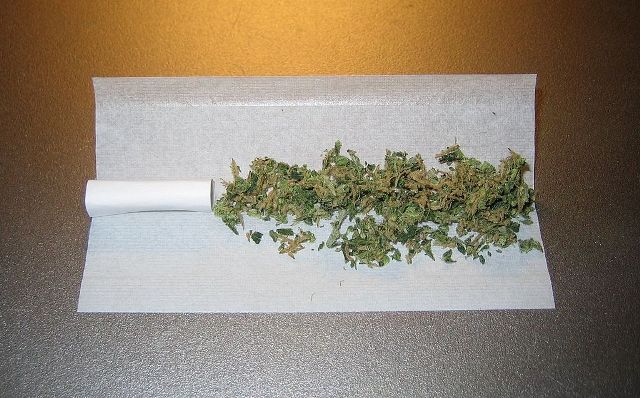
Marijuana can increase a teenager's risk of psychosis, finds study
Going from an occasional user of marijuana to a weekly or daily user increases an adolescent’s risk of having recurrent psychotic-like experiences by 159%, according to a new Canadian study published today in the Journal of Child Psychology and Psychiatry. The study also reports effects of marijuana use on cognitive development and shows that the link between marijuana use and psychotic-like experiences is best explained by emerging symptoms of depression.
“To clearly understand the impact of these results, it is essential to first define what psychotic-like experiences are: namely, experiences of perceptual aberration, ideas with unusual content and feelings of persecution,” said the study’s lead author, Josiane Bourque, a doctoral student at Université de Montréal’s Department of Psychiatry. “Although they may be infrequent and thus not problematic for the adolescent, when these experiences are reported continuously, year after year, then there's an increased risk of a first psychotic episode or another psychiatric condition.”
She added: “Our findings confirm that becoming a more regular marijuana user during adolescence is, indeed, associated with a risk of psychotic symptoms. This is a major public-health concern for Canada.”
One of the study’s objectives was to better understand the mechanisms by which marijuana use is associated with psychotic-like experiences. Bourque and her supervisor, Dr. Patricia Conrod at Sainte Justine University Hospital Research Center hypothesized that impairments in cognitive development due to marijuana misuse might in turn exacerbate psychotic-like experiences.
This hypothesis was only partially confirmed, however. Among the different cognitive abilities evaluated, the development of inhibitory control was the only cognitive function negatively affected by an increase in marijuana use. Inhibitory control is the capacity to withhold or inhibit automatic behaviours in favor of a more contextually appropriate behaviour. Dr. Conrod's team has shown that this specific cognitive function is associated with risk for other forms of substance abuse and addiction.
“Our results show that while marijuana use is associated with a number of cognitive and mental health symptoms, only an increase in symptoms of depression – such as negative thoughts and low mood – could explain the relationship between marijuana use and increasing psychotic-like experiences in youth,” Bourque said.
These findings have important clinical implications for prevention programs in youth who report having persistent psychotic-like experiences. “While preventing adolescent marijuana use should be the aim of all drug strategies, targeted prevention approaches are particularly needed to delay and prevent marijuana use in young people at risk of psychosis,” said Patricia Conrod, the study’s senior author and a professor at UdeM’s Department of Psychiatry.
Conrod is optimistic about one thing, however: the school-based prevention program that she developed, Preventure, has proven effective in reducing adolescent marijuana use by an overall 33%. “In future programs, it will be important to investigate whether this program and other similar targeted prevention programs can delay or prevent marijuana use in youth who suffer from psychotic-like experiences,” she said. “While the approach seems promising, we have yet to demonstrate that drug prevention can prevent some cases of psychosis.”
The study’s results are based on the CIHR-funded Co-Venture project, a cohort of approximately 4,000 adolescents aged 13 years old from 31 high schools in the Greater Montreal area. These teens are followed annually from Grade 7 to Grade 11. Every year they fill out computerized questionnaires to assess substance use and psychiatric symptoms. The teens also complete cognitive tasks to allow the researchers to evaluate their IQ, working memory and long-term memory as well as their inhibitory control skills.
To do their study, the research team first confirmed results from both the United Kingdom and Netherlands showing the presence of a small group of individuals (in Montreal, 8%) among the general population of adolescents who report recurrent psychotic-like experiences. Second, the researchers explored how marijuana use between 13 and 16 years of age increases the likelihood of belonging to the 8%. Finally, they examined whether the relationship between increasing use of marijuana and increasing psychotic-like experiences can be explained by emerging symptoms of anxiety or depression, or by the effects of substance use on developing cognitive abilities.
Image: Wikimedia Commons
Support Our Journalism
We cannot do without you.. your contribution supports unbiased journalism
IBNS is not driven by any ism- not wokeism, not racism, not skewed secularism, not hyper right-wing or left liberal ideals, nor by any hardline religious beliefs or hyper nationalism. We want to serve you good old objective news, as they are. We do not judge or preach. We let people decide for themselves. We only try to present factual and well-sourced news.







